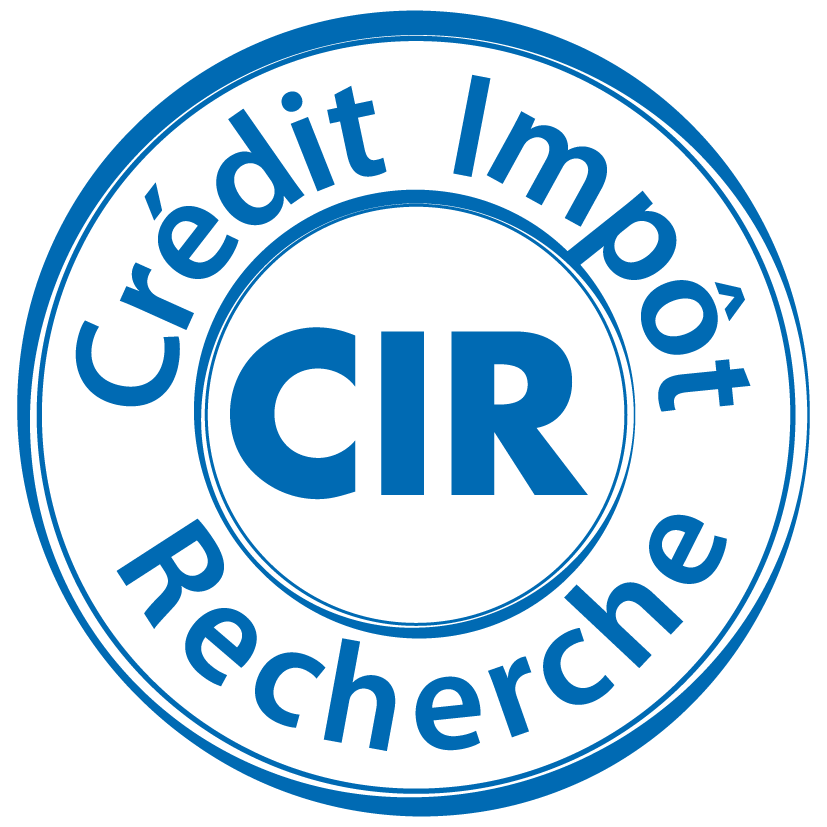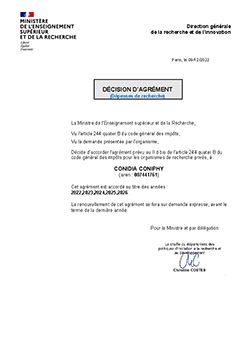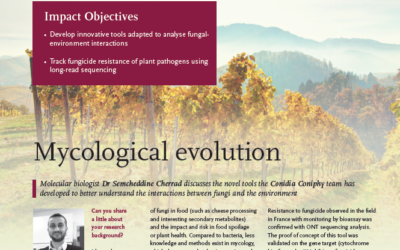CIR agreement 2022-2026
CONIDIA CONIPHY offers their client to carry out their research work in the field of microbiology.
Thanks to the CIR agreement valid for the next five years, working with our structures will allow you to recover part of the investment made in R&D work in the form of a tax credit.

The Research Tax Credit (CIR) is an essential fiscal mechanism to encourage companies to invest in research and development (R&D). This scheme offers several significant advantages. First, it allows companies to significantly reduce the costs associated with R&D projects by offering a tax credit of up to 30% of eligible expenses. These expenses include researchers’ salaries, equipment costs, and even certain subcontracting fees. By alleviating the financial burden on companies, the CIR promotes innovation and competitiveness.
Moreover, the CIR is accessible to all companies, regardless of their size or industry. This means that even small and medium-sized enterprises (SMEs) can benefit from this support to develop their innovative projects. Additionally, the CIR helps strengthen the competitiveness of French companies on the international stage by enabling them to develop cutting-edge technologies and stay at the forefront of innovation.
Another important advantage of the CIR is that it can attract talent and foreign investments. By offering a favorable environment for research and innovation, France becomes an attractive place for researchers and investors from around the world. This energizes the innovation ecosystem in France and creates a virtuous circle of growth and technological development.
Finally, the CIR plays a crucial role in the transition to a more sustainable and technological economy. By supporting R&D projects, it encourages the development of innovative solutions to current environmental and societal challenges. In summary, the Research Tax Credit is a powerful lever to stimulate innovation, competitiveness, and economic growth in France.
Our solutions associated with CIR Agreement
Testing the resistance of materials
Phytosanitary product testing
Related articles
What is grapevine powdery mildew ? Description and treatment for a healthy field
Interview with Semcheddine Cherrad on Our Innovations in Molecular Biology
Innovations in Phytopathology and NGS: Mapping Plant Pathogen Mutations in Europe
At CONIDIA CONIPHY, we are at the forefront of research in phytopathology through the use of next-generation sequencing (NGS). This revolutionary technology allows us to detect and monitor plant pathogen mutations with unprecedented precision.
Let's work together !
If you have any needs or questions about environmental microbiology, contact us and we'll provide you with the answers you need.




